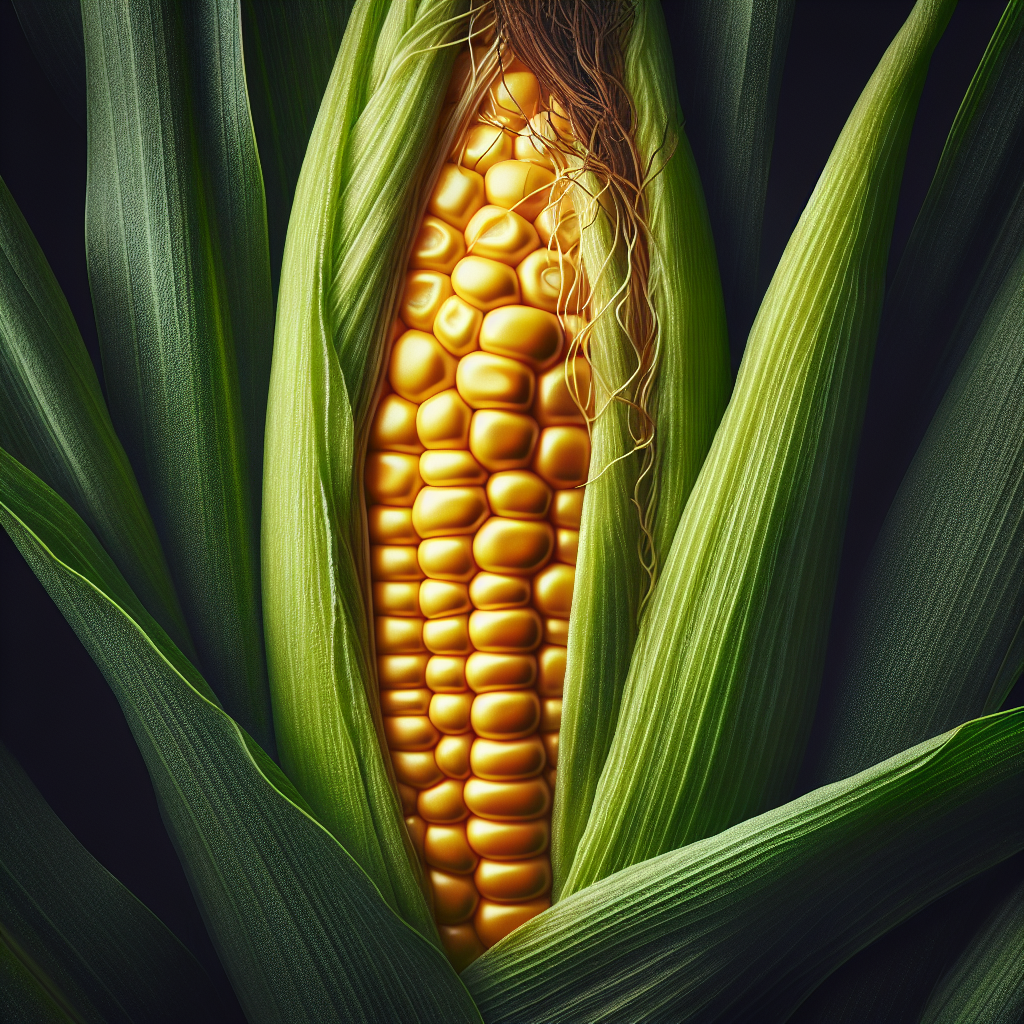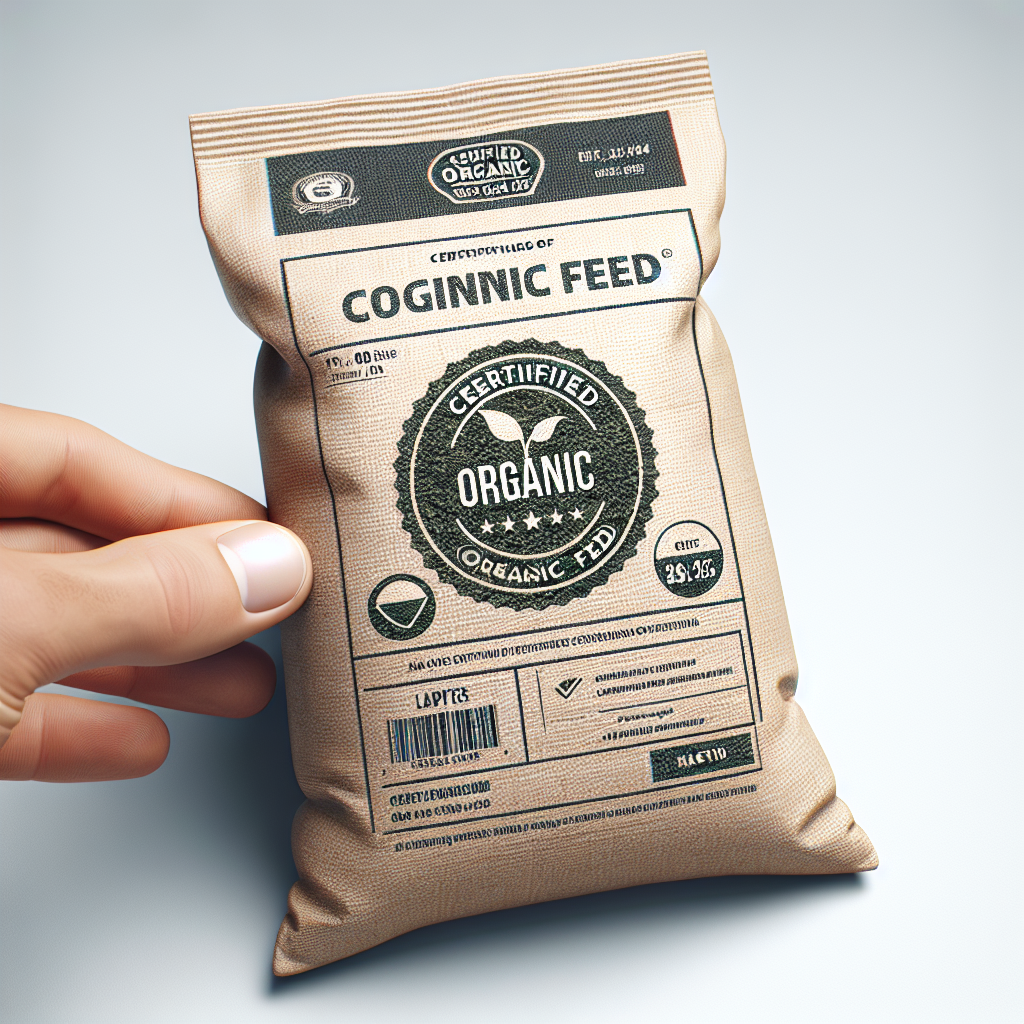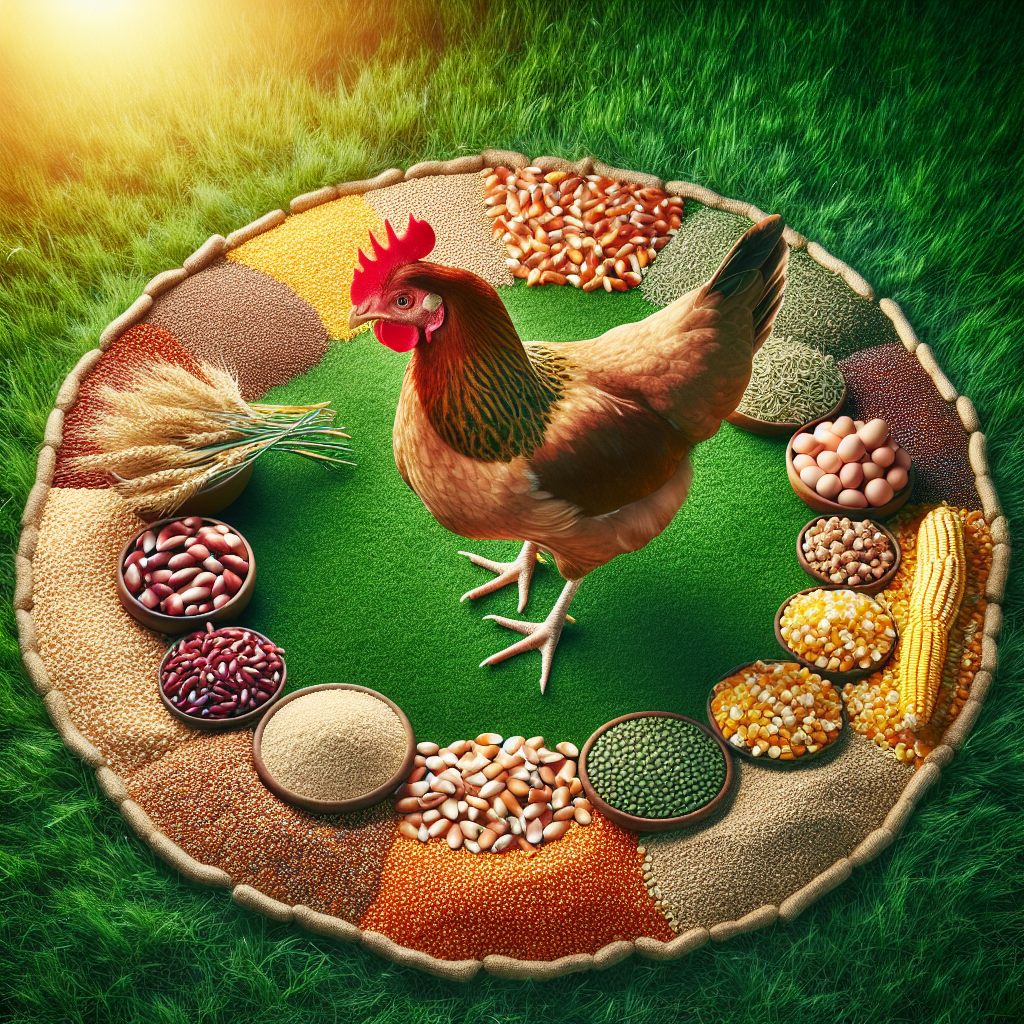Switching to organic feed for your livestock can offer numerous benefits, such as improved overall animal health and the production of high-quality organic products. However, it is important to consider whether there are any potential drawbacks or challenges that come with this transition. From potential cost implications to the need for additional management practices, it is essential to thoroughly understand the potential hurdles that may arise when switching to organic feed. In this article, we will explore these factors and provide valuable insights to help you make an informed decision about transitioning to organic feed for your animals.
Environmental Impact
1.1 Soil Health
Switching to organic feed can have a positive impact on soil health. Organic farming practices focus on building healthy soil through the use of natural fertilizers, cover crops, and crop rotation. These practices help to improve soil structure, increase nutrient content, and promote beneficial soil organisms. However, one challenge with organic feed is that it may not contain the same level of nutrients as conventional feed, which can impact soil fertility in the long term.
1.2 Land Use
Organic feed production generally requires more land compared to conventional feed production. Since organic farming practices prohibit the use of synthetic fertilizers and pesticides, farmers need to allocate more space for growing feed crops to compensate for lower yields. This can limit the availability of land for other agricultural purposes or conservation efforts. However, sustainable land management practices can help mitigate this challenge by optimizing land use and promoting biodiversity.
1.3 Water Pollution
One of the benefits of organic farming is the reduced use of synthetic inputs, such as pesticides and fertilizers, which can contribute to water pollution. By switching to organic feed, farmers can help minimize the risk of chemical runoff into water bodies and protect aquatic ecosystems. However, organic feed production still requires water resources, and inefficient irrigation practices can result in water wastage. Proper water management strategies should be implemented to address this challenge.
1.4 Biodiversity
Organic feed production can promote biodiversity by preserving natural habitats and supporting ecological balance. The avoidance of synthetic chemicals helps protect beneficial insects, birds, and other wildlife in and around farmland. Additionally, organic farming practices often involve the cultivation of diverse crops and the maintenance of hedgerows and buffer zones, which provide habitats for various species. However, the limitation of synthetic pesticides and fertilizers may make it more challenging to control some pests, potentially leading to yield losses if effective alternative management strategies are not employed.
Financial Considerations
2.1 Higher Cost of Organic Feed
One of the main drawbacks of switching to organic feed is the higher cost compared to conventional feed. Organic feed production involves higher production costs due to the use of organic inputs, labor-intensive practices, and certification requirements. These additional expenses are typically passed on to consumers, resulting in higher product prices. However, as demand for organic products increases, economies of scale and advancements in organic feed production techniques may help lower costs in the future.
2.2 Transition Period
Transitioning from conventional to organic feed production requires a significant investment of time and resources. Farmers need to follow strict organic farming practices for a certain period, typically three years, before their crops or livestock can be certified organic. During this transition period, farmers may experience lower yields and higher risks due to the absence of synthetic inputs. Managing financial resources and planning for the transition are crucial to overcome this challenge successfully.
2.3 Market Demand and Price
The market demand for organic products has been steadily increasing, providing opportunities for farmers who switch to organic feed production. However, the organic market can be volatile, and fluctuations in demand and prices can pose challenges for farmers. Farmers need to carefully assess market trends and consumer preferences to ensure a stable market for their organic products. Building strong relationships with organic food distributors and retailers can also help overcome market challenges.
Availability and Quality
3.1 Limited Supply
The availability of organic feed can be limited compared to conventional feed. The demand for organic products has been growing rapidly, and supply may not always keep up with this demand. Farmers may need to establish long-term contracts with organic feed suppliers or explore alternative feed sources to ensure a steady supply for their livestock. Supporting the development of local and regional organic feed supply chains can also help address this challenge.
3.2 Variation in Nutritional Content
Organic feed may vary in its nutritional content compared to conventional feed. The absence of synthetic additives can result in variations in protein, vitamin, and mineral levels in organic feed. To address this challenge, farmers should work closely with nutritionists and veterinarians to formulate appropriate diets for their animals. Regular testing and analysis of feed samples can also help maintain optimal animal health and performance.
3.3 Storage and Shelf Life
Organic feed, particularly grains and forage, may have a shorter shelf life compared to conventionally produced feed. The absence of synthetic preservatives in organic feed can make it more susceptible to spoilage and insect infestations. Proper storage facilities and management practices should be in place to maintain the quality and safety of organic feed. Regular monitoring and rotation of feed stocks can help minimize losses due to spoilage.
Animal Health and Performance
4.1 Digestive System Adaptation
When switching to organic feed, animals may need time to adapt to the new diet. The transition from conventional to organic feed can have an impact on the digestive system of animals, especially for those used to a diet rich in synthetic additives. Slowly introducing organic feed and providing appropriate nutritional support during the transition period can help minimize digestive disturbances and promote optimal animal health.
4.2 Energy and Nutrient Balance
Organic feed may have different energy and nutrient compositions compared to conventional feed. Farmers need to ensure that their animals receive a well-balanced diet that meets their nutritional requirements. Working with nutritionists and veterinarians can help develop appropriate feed rationing strategies and prevent any nutrient deficiencies or imbalances that could affect animal health and performance.
4.3 Growth and Development
Organic feed may not contain growth-promoting additives commonly found in conventional feed. While this may align with consumer preferences, it can result in slower growth rates and potentially lower production efficiencies in some livestock species. Farmers need to carefully manage the growth and development of their animals by optimizing feed formulation, providing appropriate healthcare, and monitoring their performance closely.
4.4 Disease and Pest Control
The restrictions on pesticide use in organic feed production can make disease and pest control more challenging. Farmers need to employ integrated pest management strategies, such as crop rotation, biological control methods, and physical barriers, to mitigate disease and pest pressures effectively. Regular monitoring and early detection of diseases and pests are crucial for timely intervention and effective control measures.
Certification and Compliance
5.1 Documentation and Record Keeping
To sell organic products, farmers must maintain detailed records and documentation of their farming practices and inputs. Transitioning to organic feed production requires meticulous record-keeping to comply with certification requirements. Farmers need to keep track of seed sources, fertilizers, pest control methods, and other inputs used in their operations. Accurate record-keeping is essential for audits, inspections, and maintaining organic certification.
5.2 Audits and Inspections
Certification bodies regularly conduct audits and inspections to ensure compliance with organic standards. These assessments can be time-consuming and may require additional resources. Farmers must be prepared for audits and inspections by maintaining organized records, implementing appropriate farming practices, and addressing any non-compliances promptly. Building a strong relationship with certification bodies can help facilitate the certification process and ensure ongoing compliance.
5.3 Compliance with Standards
Adhering to organic standards can be a complex and ongoing process. The regulations for organic feed production are strict and require farmers to continually monitor and adapt their practices to meet changing requirements. Staying up to date with new organic standards and guidelines is essential to maintain certification and ensure that organic products meet consumer expectations.
Feed Quality Control
6.1 Contamination and Contaminants
Ensuring the quality and safety of organic feed is critical for animal health and human consumption. Organic feed may still be susceptible to contamination by mycotoxins, pathogens, and heavy metals. Farmers must implement rigorous quality control measures, such as regular testing, proper storage, and strict sanitation protocols, to minimize the risk of feed contamination. Collaboration with feed suppliers and analytical laboratories can help ensure reliable quality assurance.
6.2 Storage and Handling
Proper storage and handling practices are crucial for maintaining the quality and nutritional value of organic feed. Organic feed may be more prone to spoilage and insect infestations due to the absence of synthetic preservatives. Farmers need to invest in suitable storage facilities, such as bins and silos, and implement appropriate ventilation and temperature control measures. Regular cleaning and maintenance of feed storage areas are also important to prevent feed deterioration.
Farm Management and Operations
7.1 Knowledge and Expertise
Transitioning to organic feed production requires knowledge and expertise in organic farming practices. Farmers need to stay updated on the latest organic production techniques, regulations, and research findings. Participating in educational programs, workshops, and networking events can help farmers acquire the necessary knowledge and connect with experienced organic farmers. Continuous learning and improvement are key to successfully managing organic feed production.
7.2 Transition Period
The transition period from conventional to organic feed production can pose management challenges. Farmers need to carefully plan and execute the transition, considering factors such as crop rotation, soil management, and pest control strategies. During the transition, farmers may also need to balance conventional and organic farming practices to maintain income and meet market demand. Effective farm management strategies and proper resource allocation are crucial to navigate the transition period successfully.
7.3 Integration with Existing Systems
For farmers who are already established in conventional farming, transitioning to organic feed production involves integrating organic practices into existing systems. This can require modifications to infrastructure, equipment, and workflows. Effective planning and coordination are essential to ensure a smooth integration process. Collaborating with experienced organic farmers or consultants can provide valuable guidance and support during this transition.
7.4 Scaling Up
Expanding organic feed production to meet market demand may require farmers to scale up their operations. This can involve increasing land area, livestock numbers, and processing capacity. Managing the challenges associated with scaling up, such as resource availability, financial planning, and labor management, requires careful consideration. Developing a strategic growth plan and seeking appropriate support and resources can help farmers succeed in scaling up their organic feed production.
Consumer Perception and Market
8.1 Education and Awareness
Consumer perception plays a significant role in the demand for organic products, including organic feed. Educating consumers about the benefits of organic farming and its impact on animal welfare, environmental sustainability, and human health is crucial. Farmers, industry organizations, and certification bodies need to collaborate in raising awareness and promoting the value of organic feed. Transparent communication and engagement with consumers can help enhance trust and support for organic products.
8.2 Labeling and Marketing
Clear and accurate labeling of organic products is essential to meet consumer expectations and comply with organic certification requirements. Farmers must ensure that their organic feed meets the labeling requirements specified by certification bodies and regulatory authorities. Effective marketing strategies that highlight the unique selling points of organic feed, such as its environmental benefits and animal welfare considerations, can help capture consumer interest and drive demand.
8.3 Consumer Preference
Understanding consumer preferences and market trends is essential for farmers who switch to organic feed production. Consumer demand for organic products can vary based on factors such as geographic location, demographics, and cultural influences. Farmers need to conduct market research, engage with consumers, and monitor trends to ensure that their organic feed products align with consumer preferences and expectations. Adaptability and flexibility in product offerings are critical to meet evolving consumer demands.
Regulatory Landscape
9.1 Compliance with Organic Standards
Switching to organic feed production requires farmers to adhere to organic standards and certification requirements. These standards are established by regulatory authorities to ensure the integrity and consistency of organic products. Farmers need to stay informed about the specific regulations applicable to organic feed production in their respective regions. Compliance with organic standards involves maintaining proper documentation, implementing appropriate farming practices, and participating in certification processes.
9.2 Government Policies and Support
Government policies and support play a significant role in the success of organic feed production. Governments can incentivize farmers to transition to organic farming through financial assistance, grants, tax benefits, and research funding. Collaborative efforts between government agencies, industry stakeholders, and academic institutions can help develop and implement policies that foster the growth of organic feed production. Farmers should stay engaged with government initiatives and leverage available resources to navigate the regulatory landscape effectively.
Ethical Considerations
10.1 Animal Welfare
Organic feed production is often associated with improved animal welfare outcomes. The use of organic feed can contribute to healthier livestock by reducing exposure to synthetic additives and promoting natural behaviors. Farmers who prioritize animal welfare can benefit from consumer trust and loyalty. Implementing animal welfare standards, such as providing appropriate living conditions, access to pasture, and ensuring humane treatment, is crucial in organic feed production.
10.2 Sustainable Farming Practices
Organic feed production aligns with sustainable farming practices by minimizing the use of synthetic inputs and reducing environmental impacts. By switching to organic feed, farmers contribute to the conservation of soil, water, and biodiversity. Implementing sustainable farming practices, such as efficient resource management, ecosystem conservation, and waste reduction, can further enhance the environmental benefits of organic feed production. Farmers should view organic feed production as part of a holistic approach to sustainable agriculture.




